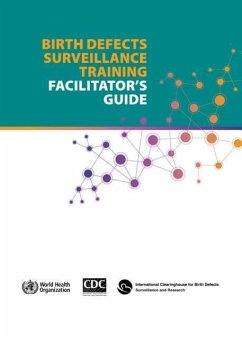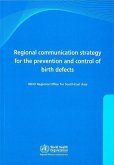The goal of this course is to provide participants with the foundational skills needed to begin the development, implementation and ongoing improvement of a congenital anomalies surveillance program, in particular for countries with limited resources. It focuses on the methodology needed to develop either population-based or hospital-based surveillance programs. A set of congenital anomalies will be used as examples throughout this course. The specific examples used are typically severe enough that they would probably be captured within the first few days after birth, have a significant public health impact and, for some of them, have the potential for primary prevention. This course is designed for individuals who are directly involved in the development, implementation and daily activities related to congenital anomalies surveillance programs in their countries and who will directly teach others.
Bitte wählen Sie Ihr Anliegen aus.
Rechnungen
Retourenschein anfordern
Bestellstatus
Storno








